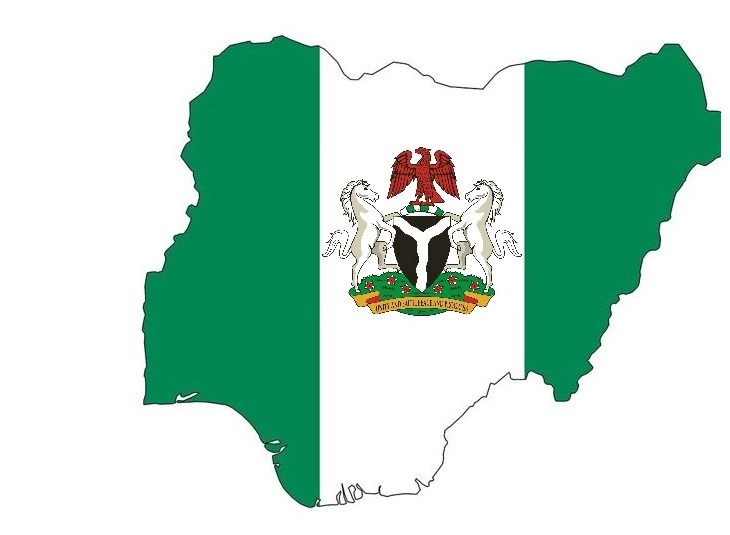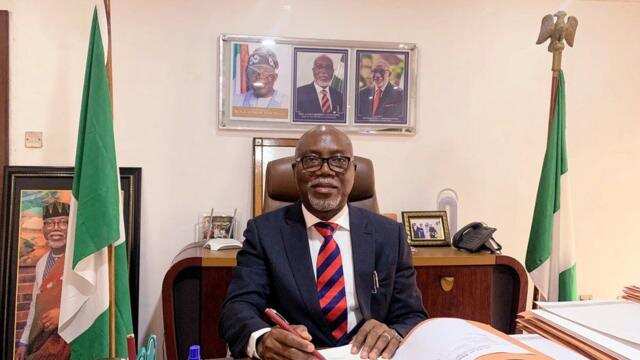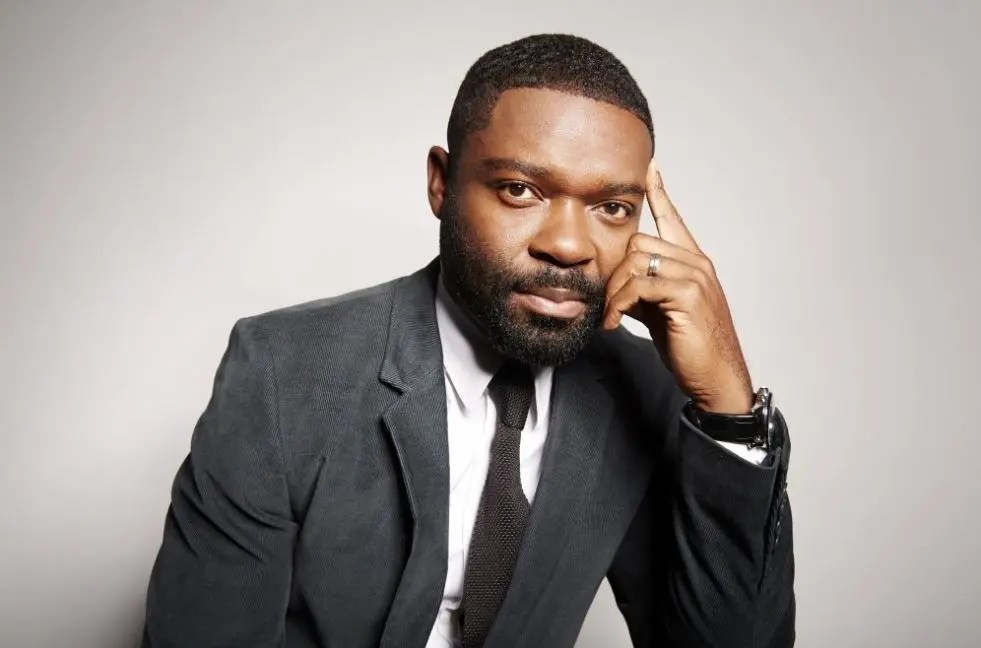
The Constitution of Nigeria is the supreme law of Nigeria. It sets out the framework for government and all its activities, including how it relates to both Nigerians and other people in its country. The 1999 Constitution was drafted at a conference from September 1997 to May 1998 and finally approved by a referendum on April 12, 1999. The history of 1999 constitution cannot be complete without including the several amendment processes.
The 1999 Constitution of Nigeria
The 1999 Constitution of Nigeria is the most recent in use today. It was put into place to replace the previous 1993 Constitution, which had caused much controversy and violence at that time. The new 1999 Constitution brought about many changes for Nigerian citizens, including a more democratic government with greater powers given to civilians and less power given to military officials. There are many articles contained within this document, and here are some of the main ones:
1) Section 1 – The people shall be sovereign;
2) Article 2 – Nigeria recognizes no distinction as an apartheid state or nation based on any other ground than citizenship;
3) Section 3 – Every individual shall have equality before the law and equal protection by law;
4) Section 14 – Every Nigerian shall be free to travel or reside in any part of Nigeria.
5) Section 143 of the 1999 constitution of Nigeria – This section harps on the removal of the president and vice-president from office.
6) Section 37 of the 1999 constitution – The privacy of citizens, their homes, correspondence, telephone conversations and telegraphic communications is hereby guaranteed and protected.”
The Constitution provides for a federal system of government, and the structure is laid down in detail. The highest legislative body at the national level, which makes laws binding throughout Nigeria on matters not granted to state governments by the Constitution, is called the National Assembly. It consists of two chambers: the House of Representatives and the Senate.
The executive branch of government is headed by the President, who appoints a vice-president and ministers as head of state. The President also exercises some powers that are vested in the National Assembly. In case there is no clear majority on important issues facing this country, it becomes challenging to govern Nigeria as a whole under one political party administration for about four years maximum term before another election takes place. Each region has its own elected house called the House of Assembly, where they debate laws specific to their states or regions. However, Lagos State is an exception. It operates similar to other states but without an upper house, thanks to its size compared to others across Nigeria’s 36 States & Federal Capital Territory (FCT). Both houses have legislative powers, and the bills passed by them have to be signed off by their governors for them to become law.
A Supreme Court heads the judiciary with final appellate jurisdiction, which has power over all other courts in Nigeria. The latter implies that no court within Nigeria can overturn any ruling made by this supreme court, making its judgments binding on everyone across the country, including state Governors. These Governors are mostly politicians elected into office every four years or when they resign before completing their term of service if they feel like it. In addition, there also exist High Courts at the State level whose judgments only bind parties involved in disputes between them. However, it may still be appealed through an appeal process called Judicial Review until decisions originate from: The Supreme Court at the national level, just as the state High Courts.
The Constitution also establishes two independent institutions to ensure no abuse or usurpation of power by any arms in Nigeria’s democracy. The Independent National Electoral Commission (INEC) ensures that regularly holds free, fair, and accurate elections. At the same time, EFCC has been established under an Act of parliament with powers vested on it to investigate cases involving economic crimes such as corruption, money laundering, etc. It includes crimes committed anywhere at home or abroad where Nigerians may be found guilty using their positions of authority. This body reports directly to the Governor-General, who acts on the advice of the President when appointing its head after the selection process conducted through an interview board consisting of three members, including representatives from the Nigerian Bar Association (NBA) & Civil Society Organizations (CSOs).
In addition to the above, certain areas have been given autonomy from central government authority by electing their system of governance as states under a federal structure. These include Lagos State, Rivers State, and South-South region, which includes Bayelsa and Cross rivers state apart from Akwa Ibom all in the south. At the same time, the north has its capital at Kaduna, where 19 other northern states exist, with Sokoto being one of them. These regions are headed by governors who report directly to President on policies governing affairs within their jurisdiction, just as the President Implements national laws that cover the entire Nigeria but not those implemented by state governments. The latter is because they fall under the purview of the Federal Government alone. However, there is an exception for a few, such as education and healthcare.
Now let us move down the southwest region, which includes Lagos state, where we find its House Of Assembly & Senate. The House of Assembly has 21 members elected into office for four years, while the Senate consists of 19 other senators who are also elected by popular votes every four years.
The first senate president in Nigeria’s democracy was Senator Alhaji Shehu Shagari, who became President afterward before General Muhammadu Buhari overthrew his government through military coup d’état. It took place after General Muhammadu Buhari accused him and other ministers, including Yakubu Gowon and top army generals all over Africa at that time, namely Olusegun Obasanjo & Tunde Idiagbon, among others, to be corrupt. This act led them to fight against one another until they were taken out through coups engineered mainly through Libyan leader Muammar Gaddafi, who wanted to rule Africa from Tripoli behind the scenes.
Features of 1999 Constitution?
Some parts of Nigeria have had constitutions since they were founded, while others did not appear during the colonial era, many were made evident after independence from Great Britain in October 1960. Prime Minister Sir Tafawa Balewa passed the first Constitution during his premiership between 1957-1959. When Nigeria became independent in October 1960, it had a parliamentary system of government, and the first Constitution was modeled after that of Great Britain (Nigeria Country Study). The country’s constitutional framework evolved with various amendments to the original 1959 Constitution.
The 1999 Nigerian constitution is often called “the best in Africa” by Nigerian scholars Adetokunbo Mumuni and Kunle Ajibade. They point out its utility in addressing corruption, devolution of powers, human rights protection, and other things. However, critics believe some sections should be amended or repealed, while others claim it does not go far enough to protect minority groups from perceived threats by dominant groups. The 1999 Constitution of the Federal Republic of Nigeria is divided into three parts and contains 137 articles.
The first part includes seven chapters with General Provisions, Fundamental Objectives, and Directive Principles in:
Part One, chapter I; Citizenship
Part One, chapter II; Bill of Rights
Part One, chapter III to VII covers fundamental human rights and freedoms such as freedom from slavery, torture, etc. It also makes provision for an anti-corruption commission, among other things. This section also outlines basic principles regarding legal proceedings, such as when someone detained or arrested should be brought before a court. It makes provision for the establishment of state police forces so that states can have their security agencies without relying on the federal police for assistance.
The second part of the 1999 Nigerian constitution contains five chapters, with about 103 articles outlining the structure and functions of government. This section covers legislative powers, executive power shared between the President and cabinet ministers, how Nigerians can participate in governance through their right to vote, etc. It also outlines state governments’ responsibilities, including creating states, regional divisions within states, and other things. The chapter on revenue allocation makes provisions for sharing money collected from taxes by different levels of government. In contrast, another chapter provides guidelines for local council elections so that every area has a chance at self-governance.
The third part contains about 30 articles divided into five chapters. The chapter on judiciary deals with the powers, structure, and composition of federal courts, while another chapter outlines judicial power to issue orders that all citizens must obey. Other parts deal with public service commissions; principles governing codes of conduct for public officials, among other things. Finally, this section includes provisions for the state government to create judiciaries to control local matters without necessarily relying on the central government’s laws.
Amendment of the 1999 Constitution of Nigeria
The 1999 Constitution of Nigeria is a document that Nigerian National Assembly ratified in May 1999. It replaced the original 1979 constitution and has been amended several times since then. The latest amendment to the Constitution came into effect on December 29, 2005, after it passed through a referendum vote earlier that year. The Constitution has been amended several times since 1999 as follows:
- The “Exclusion of the President” amendment was made in 2000. It removed all presidential immunity from criminal prosecution and provided a special tribunal to try them if their removal was necessary. This act implies that Nigeria’s top President can be charged anytime by law enforcement agencies over allegations of corruption or other crimes committed during his tenure.
- The “Re-election Amendment.” In 2004, then Nigerian President Olusegun Obasanjo seemed bent on remaining in power indefinitely after declaring plans to run again for office when his second term expired in 2007 despite the constitutional ban against it. Furthermore, there were proposals to remove such provisions altogether, requiring transition between different administrations (i.e., transition committees).
- The “Third Term Amendment” was passed in Nigeria’s National Assembly on November 13, 2006. This amendment allowed President Obasanjo to run for a third term as Nigerian President, extending his 2007-2010.
- The “Pardon Clause”. In May 2010, the fourth amendment of the 1999 constitution removed immunity from prosecution from all former presidents and governors. It implies that law enforcement agencies can be prosecuted anytime over allegations of corruption or other crimes committed during their tenure once elected into office after leaving power (i.e., presidency/governorship).
- The “Fifth Amendment” was passed in 2010. It has come to be known as the ‘secrecy amendment’ because it removed a clause that stated: “the right of every citizen and all other persons under Nigerian jurisdiction to freedom of information, subject to such limitations as may be prescribed by law.” It means that Nigeria’s President is now allowed to withhold from lawmakers and Nigerians alike some documents he thinks would endanger state security if they were made public without any further explanation or justification.
Note ⇒ You can get this article (Nigeria 1999 Constitution PDF file) by downloading the link.
This article is very important for reference purposes, research, assignments and the likes as it contains all you need to know about the 1999 Constitution of Nigeria as amended till date (2024). What’s your take or opinion as regards the subject matter? Fell free to comment below using the comment section let’s share ideas.



